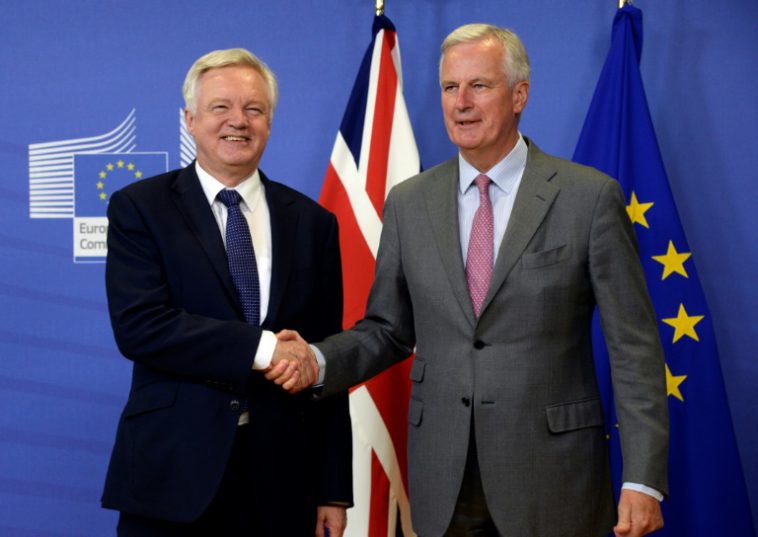The British government could agree to free movement of people during a Brexit transition period, newspapers reported on Friday in what would be a major reversal of current plans.
The transition period could last between two and four years after Britain leaves the European Union as expected in 2019, the Times and the Guardian reported, citing anonymous sources.
“If you ask business when they want to see it agreed, they’d say tomorrow,” a senior cabinet source told the Guardian. The Times quoted “a British source close to the negotiations” with Brussels.
Curbing EU immigration was a key argument for the “Leave” campaign in last year’s referendum in which Britain voted to end four decades of EU membership.

Britain voted to leave the European Union in a referendum in June 2016
Prime Minister Theresa May has promised to end the free movement of people as Britain exits the bloc and bring down net migration to “tens of thousands”.
Around 250,000 EU nationals move to Britain every year — mainly from eastern and southern Europe — and a total of around 3.2 million live in the country.
May’s government has been riven by infighting between supporters of a clean cut with the European Union and those who want a “soft” Brexit that would retain much stronger European trading ties.
Granting free movement of people could allow Britain greater access to the European single market even after it has formally left the EU.
The Confederation of British Industry, Britain’s big business lobby, has called for Britain to retain single market access during any transition period.
CBI leader Carolyn Fairbairn was among business leaders who met with May at her Downing Street office on Thursday following complaints from many firms about a lack of clarity in government plans.

Britain’s Brexit minister David Davis (left) and EU Brexit negotiator Michel Barnier meet in Brussels on July 17, 2017
May “reiterated that the government’s overarching goal is for a smooth, orderly exit culminating in a comprehensive free trade deal with the EU, with a period of implementation in order to avoid any cliff-edges,” a Downing Street spokesman said.
Francis Martin, head of the British Chambers of Commerce, who also took part in the talks, said a transition period was a priority for business.
“Our research shows clear support among the business community for the UK to reach a comprehensive agreement with the EU, and for a transition period which will prevent firms facing a cliff-edge.
“The prospect of multiple, costly, adjustments to trading conditions is a concern for many, so starting discussions on transition arrangements as soon as possible would go a long way to boost business confidence,” he said.
The EU’s Brexit negotiator urged Britain on Thursday to provide more clarity on key issues after the second round of talks wrapped up in Brussels with “fundamental” differences remaining.
Michel Barnier said after talks with his counterpart David Davis that the two sides were still at odds over Britain’s divorce bill and over the rights of European citizens living in Britain.
Davis, a long-time eurosceptic picked by British Prime Minister Theresa May to lead the negotiations, said the talks were “robust but constructive” but that there was “a lot left to talk about.”
The next round of talks is expected to start on August 28.






